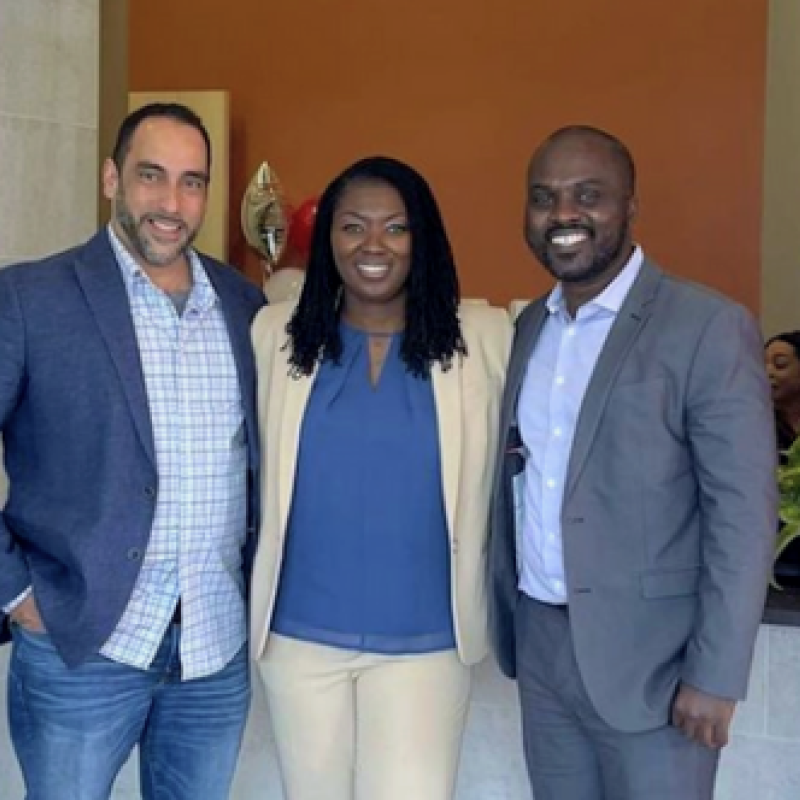Enterprise Center to help minority-owned businesses with due diligence costs

Media Outlet
Jeff Blumenthal
Enterprise Center Capital Corp., the community development financial institution of the Philadelphia-based Enterprise Center, has launched a new $500,000 Due Diligence Revolving Advance Pool that will help minority business enterprises pay for due diligence expenses by advancing funds to them on favorable terms.
The Advance Pool is designed to be a self-replenishing fund of favorable short-term financing with flexible terms and competitive rates that can be used in combination with more conventional sources of funding. Funding can be used by minority-owned businesses to cover the cost of due diligence expenses and other closing costs that may be incurred during the investment process. Businesses will repay the amount advanced to them at the closing of the debt or equity financing transaction, together with what the Enterprise Center termed as modest interest based upon the amount advanced and repayment window.
If a business receives funding from the Advanced Pool and the financing transaction remains incomplete at 12 months, then the advance will be converted to a three-year unsecured note that will accrue interest at an annual rate equal to 3.5% paid monthly. The Advance Pool will support up to 75% of the business’s upfront due diligence and related costs to closing, with the business covering the remaining 25%. Final determinations will be based on estimated costs and the type of transactions.
The Enterprise Center’s team of loan and financial experts will review each request for assistance and require some standard documentation for a business to be considered. All types of business are eligible to apply, but must meet the following criteria:
- Be a for-profit business enterprise in which at least many of its voting securities or equity economic interests are owned by one or more minority groups.
- Have passed the ideation stage and are currently receiving $500,000 recurring revenue on a trailing 12-month basis.
- Have at least two full-time employees who have been employed for at least six months.
- Have an investor pipeline or identified a lending source.
Enterprise Center CEO Della Clark said the pool will primarily serve Black and brown business owners in southeastern Pennsylvania. She said some minority business owners have problems buying their own real estate. As an example, she said if a hypothetical janitorial business was looking to buy a warehouse, it would need an appraisal to negotiate with the owner and agree upon a price. Then it would need an attorney and someone to conduct a building inspection to get a sense of how much it would cost to retrofit the space.
“I could be out of $15,000-$20,000 before I go to a bank,” Clark said. “Then the bank is not going to accept that appraisal I used to negotiate with the owner. I have to get a new appraisal that the bank is going to authorize and come out of my closing. So what we saw was a lack of assets being accumulated around minorities because they don't have [enough] capital in order to get to the point of getting to a bank for an approval.”
The Advance Pool makes low-cost capital available for due diligence that would be paid back at closing, which will help the fund replenish itself.
“The purpose is really to help small retailers and businesses begin to own their assets,” Clark said.
The entire $500,000 was raised from a local, undisclosed private donor.
Those interested in accessing the Due Diligence Advance Pool can contact capital@theenterprisecenter.com.
The Enterprise Center is also making progress on some other projects.
The $125 million plan to revitalize the commercial corridor along 52nd Street in West Philadelphia has taken a step forward with the completion of construction on 277 S. 52nd St. — which had been a boarded-up building — using all minority vendors. Clark said she hopes to get a certificate of occupancy in the next week or two for what would be a community resource hub.
Chase Bank just opened a branch at the intersection of 52nd and Market streets. While not a specific part of the Enterprise Center’s plan, Clark said it is part of a broader strategy to transform the corridor and that she is still working to attract another financial institution as well as other businesses.
Last year, the Enterprise Center paid $12.5 million for a 2.9-acre parcel on the south side of Market Street from the corner of 46th Street to the Community College of Philadelphia’s new building at the corner of 48th Street. Clark said it has now put together a development team and is working on the master plan with architects, which it hopes will be completed by the fall.
“We have some concepts and ideas, but we don't have our anchor tenant yet,” Clark said.
The Enterprise Center has raised $30 million of a $50 million goal for the Small Business Investment Company (SBIC) it launched last spring that will provide growth equity capital to local “standout” minority- and women-owned businesses in the Philadelphia region. Clark said it has been a “struggle” to secure the remaining $20 million. She said the SBIC already has 15 different investors — largely private equity and financial services firms.
“I'm not discouraged,” Clark said. “I just realize it's the hardest thing I've ever tried to do. I think we are three years out from George Floyd’s death, and I first thought that the capital market system was broke but now I've come to realize it was designed to keep poor people out and keep minorities out of the capital markets. I don't think capital markets are ready to bet on Black and brown. And this is part of the issues in Philadelphia.”











